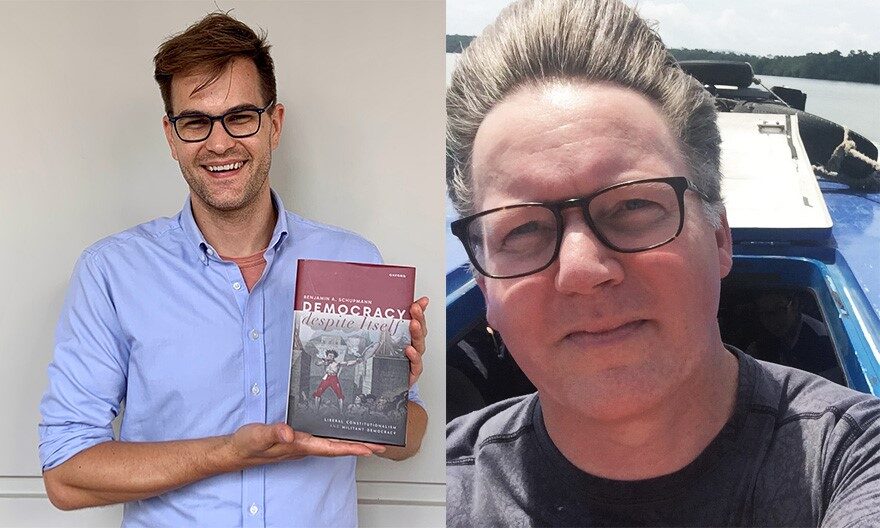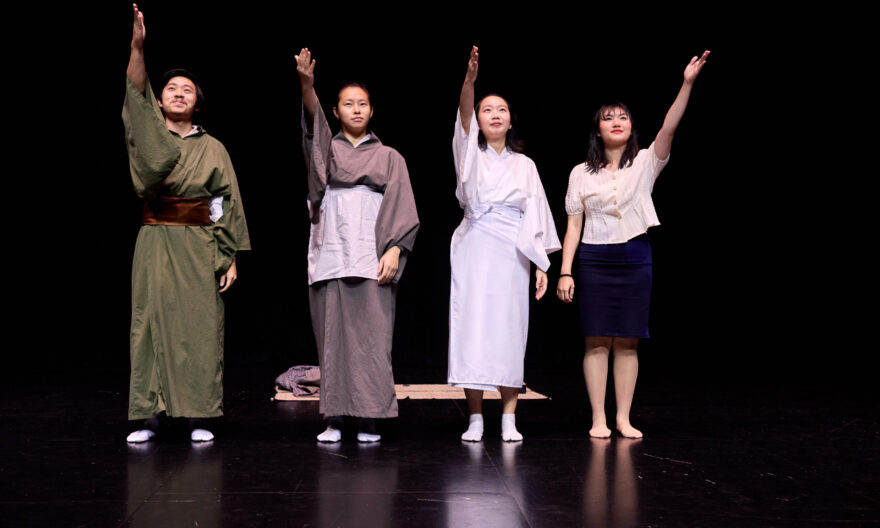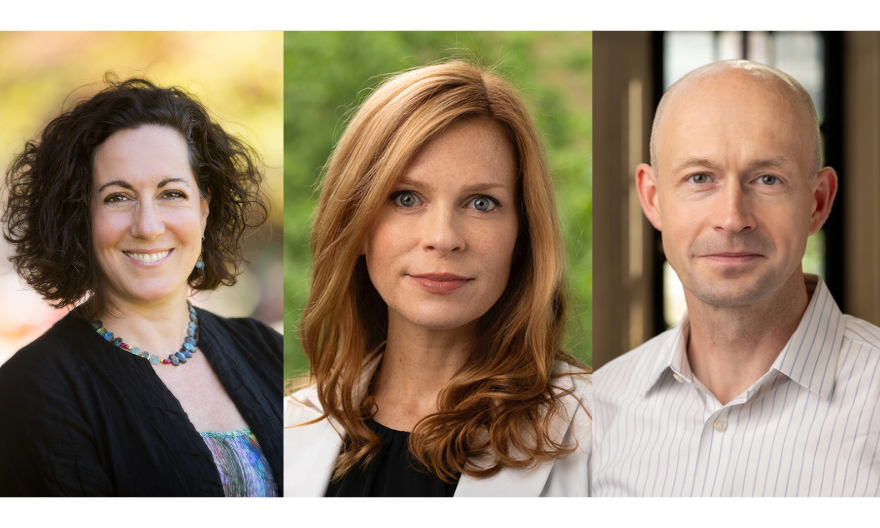Students publish papers alongside their professors
At Yale-NUS College, students have many opportunities to work actively with faculty members on high-level research, gaining early exposure to the field of academia. This is largely due to the College’s low faculty to student ratio (about one to eight) and the focus on providing learning experiences beyond the classroom. As a result of this, Yeo Zhi Yi (Class of 2020), published the article ‘Effects of traffic noise on vocalisations of the rhacophorid tree frog Kurixalus chaseni’ in the Raffles Bulletin of Zoology on 25 February 2019.
Zhi Yi investigated how traffic noise could affect the calling of tree frogs by artificially introducing traffic noises to the frogs in an area that is still “pristine” – Danum Valley in Borneo, Malaysia – which is untouched by urban infrastructure. He found that the noises caused the frogs to call louder, which requires them to expend a larger amount of energy. Zhi Yi’s research points to the larger issue of how deforestation and a rapid expansion of road networks, a common phenomenon in Southeast Asia, could have an indirect impact biodiversity and the wildlife, apart from causing a loss of habitat.
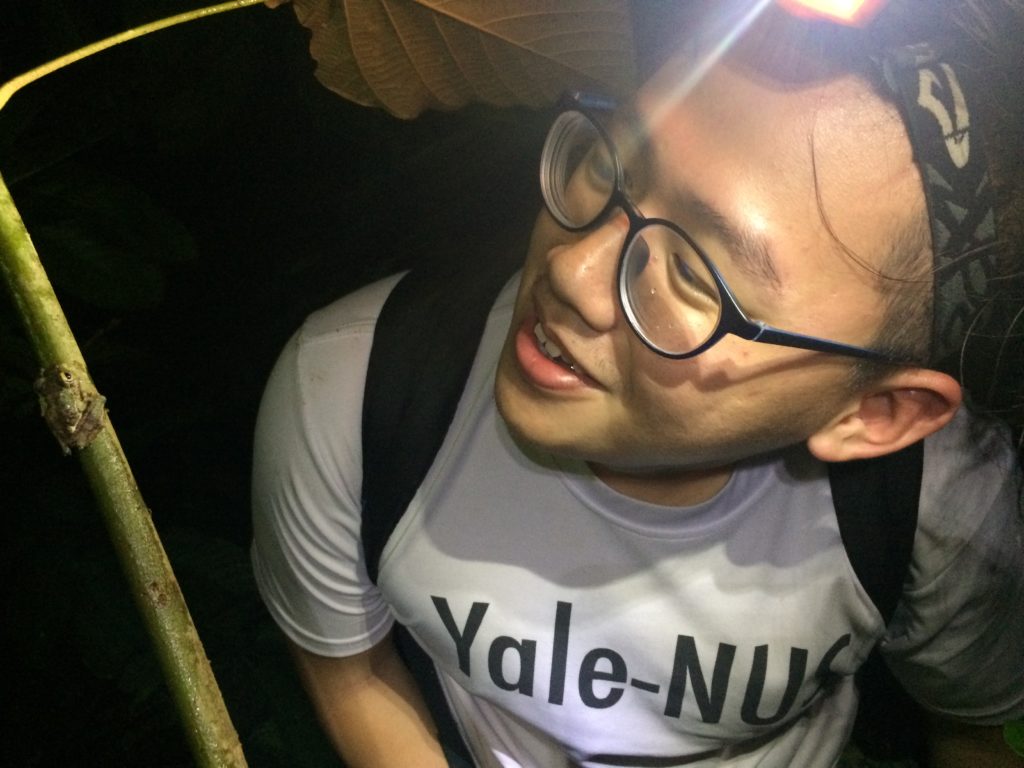 Yeo Zhi Yi in Danum Valley in Borneo, Malaysia. Image provided by Asst Prof Jennifer Sheridan.
Yeo Zhi Yi in Danum Valley in Borneo, Malaysia. Image provided by Asst Prof Jennifer Sheridan.
The project was conceptualised after Zhi Yi attended a course in Conservation Biology, where he headed to Danum Valley to learn about natural history and improve research skills in the sciences. He worked with then Assistant Professor of Environmental Studies and instructor for the course, Jennifer Sheridan.
“Asst Prof Sheridan’s input and guidance throughout the process were especially valuable, and I hope to continue conducting research that furthers our understanding of environmental challenges, and use that to enact change,” Zhi Yi said.
Yale-NUS alumna Alaine Johnson (Class of 2018) also recently co-authored a journal article with Assistant Professor of Social Sciences (Environmental Studies) Marvin Montefrio on Participatory Guarantee Systems (PGS) for organic production in the Philippines. The article was published in December 2018 in the Journal of Rural Studies, one of the top journals in agrarian and rural studies.
PGS is a type of certification system for agriculture and produce that seeks to promote food sovereignty in different communities, confirming that the food is ethically produced, follows fair trade practices, and that the produce adheres to the agreed upon organic standards in the region it is produced. PGS ensures the integrity of organic production by assessing the active participation of stakeholders such as farmers, experts and government officials.
Farming groups adopting PGS are often presented as fully embracing the transformative promises of this supposedly more democratic, inclusive and locally-focused organic certification system. However, the findings of Ms Johnson and Asst Prof Montefrio adopt a critical lens and challenge this assumption.
In July 2017, Ms Johnson also had the opportunity to present the research project at the 10th International Convention of Asia Scholars held in Chiang Mai, Thailand. As an undergraduate amidst the sea of established scholars and graduate students, her presentation made notable contributions to this field of research.
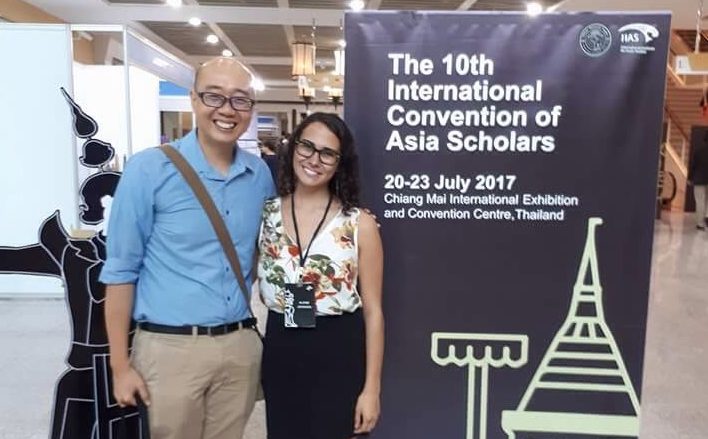 Ms Johnson and Asst Prof Montefrio at the 10th International Convention of Asia Scholars. Image provided by Alaine Johnson.
Ms Johnson and Asst Prof Montefrio at the 10th International Convention of Asia Scholars. Image provided by Alaine Johnson.
“The conference was an incredible experience,” Ms Johnson said. “It introduced me to individuals who were able to carve a name out for themselves in various fields of academia, and gave me clear insight on what life in academia might entail.”
The research drew on their ethnographic research in the Philippines, and was informed by the theory of post-structuralist political economy. The paper argued that PGS can be contested spaces where members continue to negotiate tendencies to aspire for less transformative systems, such as the private sector-driven third-party certification.
The project emerged from humble beginnings as part of a summer research programme opportunity provided by the Centre for International & Professional Experience (CIPE) in 2015, with Ms Johnson as a research assistant to Asst Prof Montefrio.
“Growing up in the United States, I remember these labels of “organic”, “fair trade” and “ethically-sourced” leading to an idea of having consumer sovereignty when buying our food products, as if we’re buying into something more impactful,” Ms Johnson reflected. A trip to Guatemala when she was 17, however, shed light on the lack of awareness of fair trade during her conversations with the local coffee farmers, and compelled her to dig deeper into understanding the power structures behind global agricultural systems and the branding around sustainability and social justice.
Given her experience and keen interest in the topic, Asst Prof Montefrio chose Ms Johnson for the research position. He guided and mentored Ms Johnson in the early stages of fieldwork, before giving her the opportunity to steer a large part of the rest of the research and fieldwork process.
“Alaine was the best person to take on such a position because she is so independent and directed in her learning,” Asst Prof Montefrio said.
Reflecting upon this experience, Ms Johnson finds herself immensely grateful for Professor Montefrio’s dedication and trust through the whole process.
“Setting out the paper was incredibly daunting, and almost paralysing at first. Fortunately, Asst Prof Montefrio’s continual guidance and insights were valuable in overcoming the various difficulties encountered during the process of research and finding direction for my writing,” Ms Johnson shared.

